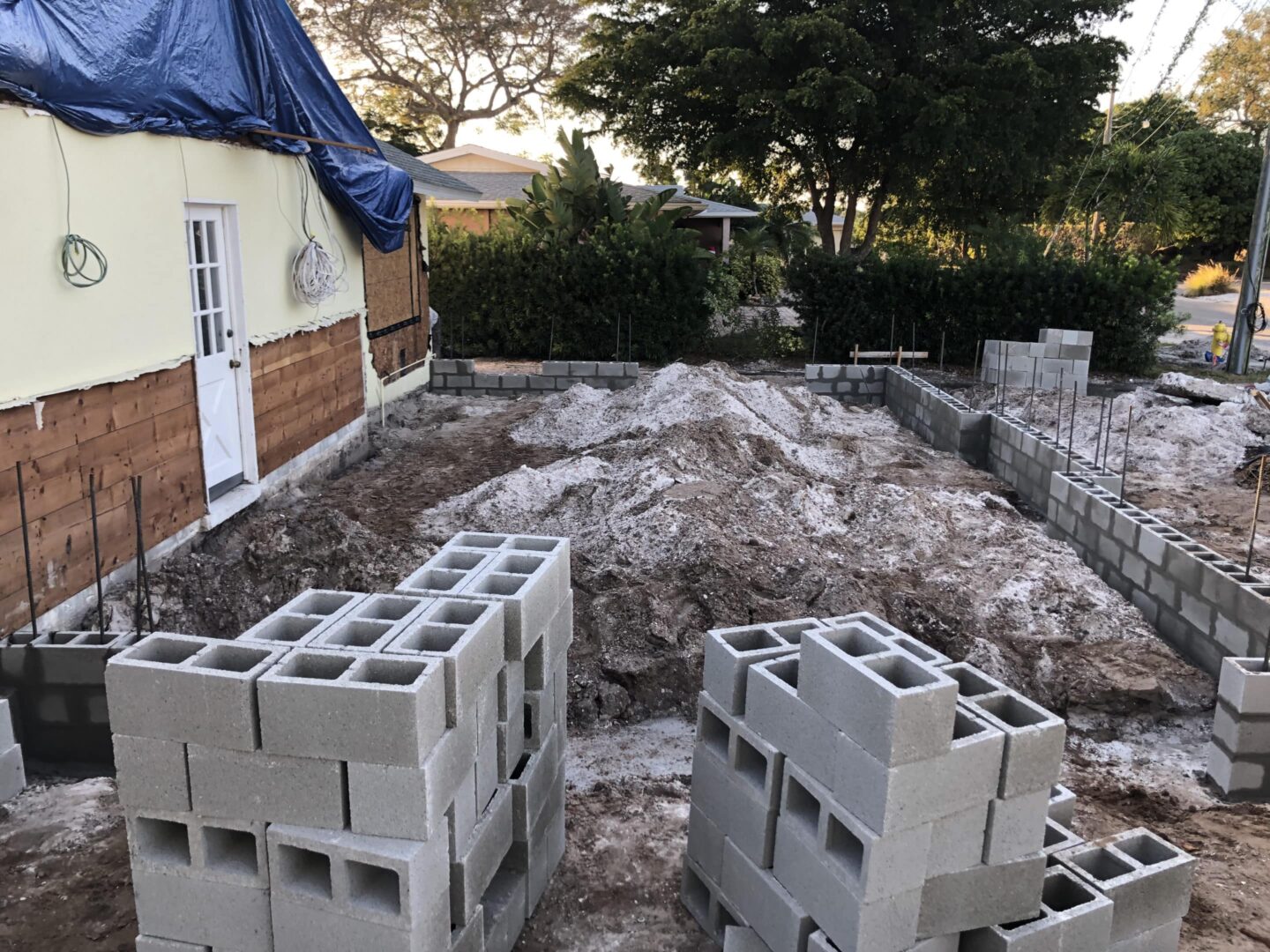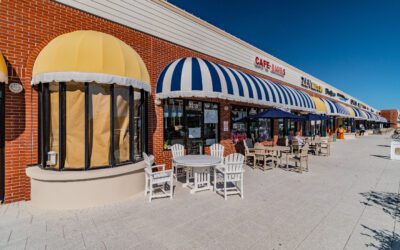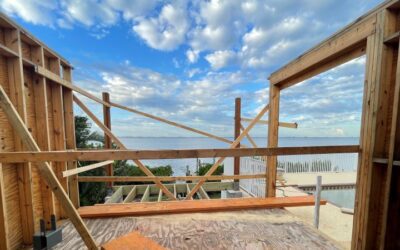When considering expanding usable square footage under air for a residential property located in Manatee county there are many considerations which must be addressed. Perhaps the most significant of these considerations is whether to attach the additional square footage to your existing home via and addition or to detach the additional space from you existing home.
When discussing detached structures there are typically three ways to best achieve success: Certified lot split, accessory dwelling unit (ADU) or a guesthouse. Each option presents its own set or risks versus rewards and working with us to understand the details of these risks and rewards will help you make the right decision on which method is best for you.
Certified lot split (Manatee County LDC part V.:
Lot Split (Certified Lot(s)) shall mean dividing or splitting unplatted land into no more than two (2) lots, both of which are buildable per the current zoning of the proposed parcel(s) and consistent with the LDC and Comprehensive Plan and which meets the following three (3) requirements:
1. Not involving the establishment of a new street.
2. Not involving the extension of any public facility mains within the rights-of-way and creation of any new general public improvements involving the review or approval of construction drawings, as determined by the Manatee County excluding individual lot service connections; and
3. Not in conflict with any provision of the Comprehensive Plan, Land Development Code, Building Code.
A. Each new lot shall be a legal conforming lot of sufficient size to meet minimum zoning requirements, uplands, and setbacks as required by the Land Development Code. Flag lots shall not be permitted.
B. The parent parcel shall front on an existing public or private street built to the current Manatee County Development Standards. Creation of a new public or private street shall require a Major Subdivision. Access by easement is permitted pursuant to LDC Section 1001.1.B.3.
The certified lot split is an option which allows a single residential parcel to be split into two residential parcels through a formal request document provided by the Manatee County Property Appraiser named, ‘MANATEE COUNTY PROPERTY APPRAISER REQUEST FOR REAL PROPERTY SPLIT/COMBINE’. This form is filled out with all the appropriate details, inclusive of the fees, which are $1000 per parcel. (The fee is always $2000 because you’re taking one parcel and requesting to be split into two so the $1000 fee applies to each parcel). All property taxes and special assessments must be current and paid in full for the form to be accepted.
Once the lot split is approved, the owner is free to prepare and submit a site plan and construction drawings as normal, following the appropriate procedures within the land development code, including a possible pre-application meeting with county staff to review a preliminary site plan.
Accessory Dwelling Unit (ADU):
Accessory Dwelling Units (ADUs) are smaller residential units that are located on the same property as the main house, and are regulated by Section 518 of the Manatee County Land Development Code.
ADUs:
• may not be allowed by a Homeowner’s Association; if you live in a deed restricted community, check with the HOA
• are prohibited in the Whitfield Residential Overlay District, and the Bayshore Gardens Park and Recreation District
• are prohibited in Planned Development communities, unless an ADU “use” is approved by the Board of County
Commissioners for the Planned Development community, at a public hearing
• can be attached to the main house or be detached; only one ADU or guest house is allowed
• are smaller residential units with a full kitchen/bath, and a separate entrance
• must have a valid County Building Permit to construct:
– must match architectural style and color of the main house
– must have a designated parking space
– will require available utility and school capacity
• must remain in the same ownership as the main house; are limited in size (750 s.f. max., except A, A-1 1,000 sf. max.) based upon the zoning district, required setbacks, existing natural resources, and site constraints
• require owner occupancy in either the main house or ADU, and a recorded notice to buyers
In summary, An accessory dwelling unit is a detached residential structure located on your property that contains all the commendations and appurtenances of a traditional home, including a full kitchen. The restriction is that the accessory dwelling unit cannot be more than 750 ft.². All other land development code processes and procedures apply to the structure. The most significant aspect of an accessory dwelling unit as viewed by most people is its ability to be a fully functioning, standalone residential unit without any restrictions. However, the size more often than not is a limiting factor when determining whether an ADU is appropriate for your use.
A guest house is a detached residential structure built on your land that is allowed to be up to one square foot smaller than the existing residential structure on your land. The main consideration when determining if the guest house is appropriate for your use is the limiting factor of a fully functioning kitchen, with a stove and oven not allowed in a guesthouse.
We at Adkins Building & Construction or experts in construction in Manatee County and have an established proprietary process specifically designed to manage the construction from conception to completion, including any pre-application reviews and Land Development Code regulations regarding the type of structure allowed on a specific parcel.




